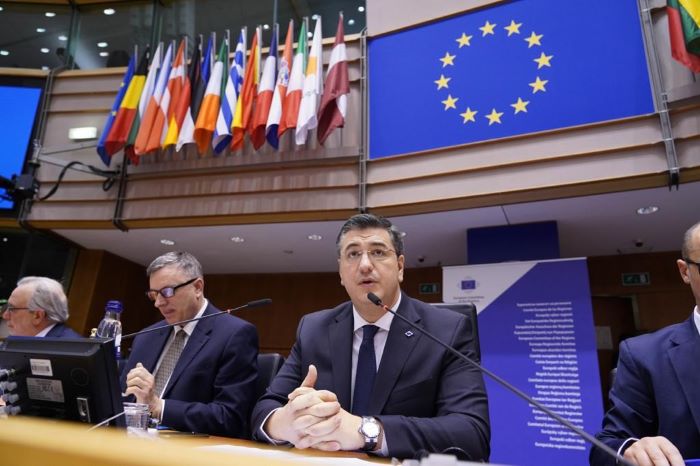Press release – COVID-19: research package welcomed, EU needs to be better equipped in future

“We applaud the measures taken by Commissioner Gabriel and the pooling of almost €140 million against COVID 19. The Commission was very fast in launching a special call for expressions of interest from Horizon 2020 and involving relevant stakeholders under the Innovative Medicines Initiative (IMI) public-private partnership”, said Horizon Europe rapporteur Christian Ehler (EPP, DE).
“Now, we have to start thinking ahead in order to be better equipped for the future. Research and development clearly have an important role to play in addressing global challenges. This is yet another reason to support our proposal for €120 billion for Horizon Europe.”, he added.
A test of our ability to work together
“The health crisis posed by COVID-19 is focusing minds. The top priority now is to stem the spread of the virus. Behind the scenes, emergency research is working on finding a treatment and a vaccine. The virus’ extraordinary rate of contagion should make us aware that our interconnected world has shrunk considerably and that joint and coordinated action between states is the only way to deal with this crisis”, said Christian Ehler.
“This crisis is a test of our ability to work together on an emergency situation on the one hand, and to remain faithful to our long-term objectives on the other”, he said.
“When this crisis is over, we must immediately prepare for the next one. This means investing more in research and ensuring that programmes such as Horizon Europe do not become hostages to short-term squabbles between member states”, he concluded.
COVID-19: EU and industry to fund more research through Innovative Medicines Initiative
The Innovative Medicines Initiative (IMI), a public-private partnership between the European Commission and the pharmaceutical industry, has today launched a fast-track call for research proposals to develop treatments and diagnostics in response to the COVID-19 outbreak. Up to €45 million of the funding will come from Horizon 2020, the EU research and innovation programme.
This call is part of the coordinated EU response to the public health threat of COVID-19 and complements the emergency research funding already mobilised recently under Horizon 2020. You can find more information about the IMI call here, and the EU research actions on COVID-19 here (source : European Commission).


